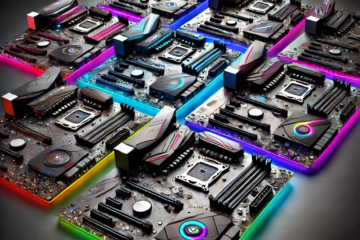When it comes to pursuing a career in technology, two of the most popular fields are Computer Science (CS) and Information Technology (IT). Both areas offer exciting opportunities and lucrative career prospects, but they focus on different aspects of technology. If you’re trying to decide which path is right for you, understanding the key differences between Computer Science and Information Technology is essential.
In this article, we’ll break down what each field entails, the skills required, and the types of jobs you can pursue in both, helping you make an informed decision about your future.
What Is Computer Science?
Computer Science is the study of computers and computational systems, including how they work, how they are programmed, and how they can solve problems. It involves a deep dive into software development, algorithms, data structures, programming languages, and more. Computer science also focuses on the theoretical aspects of computing, such as machine learning, artificial intelligence, and cryptography.
Core Topics in Computer Science:
- Programming: Learning multiple programming languages, such as Python, Java, C++, and more, to write software and applications.
- Algorithms: Designing and analyzing algorithms that allow computers to process information efficiently.
- Data Structures: Organizing and managing data to optimize performance in applications.
- Software Development: Building software from the ground up, including understanding software engineering principles.
- Theoretical Computer Science: Topics like machine learning, artificial intelligence (AI), computational theory, and cryptography.
Key Skills Required:
- Strong mathematical and problem-solving abilities.
- Proficiency in programming languages.
- Analytical thinking for designing efficient algorithms and systems.
- Knowledge of software development processes and tools.
Types of Jobs in Computer Science:
- Software Developer/Engineer: Building and maintaining software applications.
- Data Scientist: Analyzing and interpreting complex data sets to guide decision-making.
- Machine Learning Engineer: Creating algorithms and models that allow systems to learn and improve over time.
- Systems Architect: Designing the overall structure and framework of complex systems.
- Cybersecurity Analyst: Protecting systems from security threats through encryption, firewalls, and secure protocols.
Who Should Choose Computer Science?
If you have a passion for coding, problem-solving, and working on the cutting edge of technology, Computer Science may be the right path for you. It’s ideal for individuals who are interested in building and developing software, diving into the theoretical side of computing, and working with algorithms and programming on a daily basis.
What Is Information Technology?
Information Technology (IT) focuses on using technology to solve practical business problems. IT professionals manage, implement, and support computer systems and networks, ensuring that businesses run efficiently and securely. IT is often more application-focused than Computer Science, dealing with how technology can be applied to real-world situations, such as maintaining a company’s database, setting up networks, or troubleshooting hardware issues. The Bachelor of Information Technology degree equips students with the skills needed to excel in the IT industry.
Core Topics in Information Technology:
- Networking: Setting up, managing, and securing computer networks for businesses and organizations.
- System Administration: Managing servers, workstations, and ensuring systems run smoothly.
- Database Management: Storing, organizing, and retrieving data efficiently and securely.
- IT Support: Troubleshooting software and hardware issues, providing technical support to users.
- Cybersecurity: Implementing security measures to protect systems from data breaches and cyber threats.
Key Skills Required:
- Understanding of networking protocols and system architecture.
- Knowledge of database management systems.
- Ability to troubleshoot hardware and software issues.
- Familiarity with cybersecurity practices.
- Good communication skills for providing user support.
Types of Jobs in Information Technology:
- IT Support Specialist: Assisting users with technical issues and maintaining hardware/software systems.
- Network Administrator: Managing an organization’s network infrastructure, including servers, routers, and firewalls.
- Database Administrator: Overseeing database systems to ensure that data is stored securely and efficiently.
- Systems Administrator: Managing the company’s IT infrastructure, from servers to security.
- Cybersecurity Analyst: Protecting data and systems by implementing firewalls, monitoring security, and responding to breaches.
Who Should Choose Information Technology?
If you enjoy practical, hands-on work and are interested in maintaining and supporting computer systems, Information Technology could be a great fit. IT is well-suited for those who prefer working with existing systems and networks, solving real-world problems, and providing support to users.
Key Differences Between Computer Science and Information Technology
While both Computer Science and Information Technology involve working with technology, they differ significantly in focus, skills, and career paths. Here’s a breakdown of the major differences:
1. Focus
- Computer Science: Focuses on developing and understanding software and systems from a technical and theoretical perspective. It’s about creating new tools and applications and advancing computing technology.
- Information Technology: Centers on applying technology in practical ways, often to solve business problems. IT professionals manage and maintain existing technology, ensuring that systems run smoothly.
2. Skills
- Computer Science: Requires a strong background in mathematics, programming, and problem-solving. The focus is on building software, coding, and working with algorithms.
- Information Technology: Requires knowledge of network infrastructure, hardware, software support, and cybersecurity. IT professionals need to understand how to manage, troubleshoot, and support existing technology.
3. Career Paths
- Computer Science: Jobs tend to focus on software development, systems architecture, and innovation. Roles like software engineer, data scientist, and AI developer are common in this field.
- Information Technology: Jobs are often centered around system administration, technical support, and network management. Common roles include IT support specialist, network administrator, and database manager.
4. Educational Requirements
- Computer Science: Typically requires a strong foundation in mathematics and programming. Many computer science degrees involve coursework in algorithm design, data structures, and computational theory.
- Information Technology: Focuses more on practical applications, such as managing networks, ensuring cybersecurity, and providing tech support. IT degrees often include coursework in networking, database management, and system administration.
How to Decide Which Path is Right for You
Choosing between Computer Science and Information Technology depends on your interests, strengths, and career goals. Here are a few questions to help you decide:
- Do you enjoy programming and software development?
- If you love coding and want to build software or apps, Computer Science is the better fit.
- Are you more interested in managing and supporting technology?
- If you prefer working with existing systems and solving tech problems, Information Technology is a great choice.
- Do you want to focus on theoretical or practical applications?
- If you enjoy diving deep into algorithms, data, and complex software development, Computer Science is ideal.
- If you like applying technology to solve real-world business problems, Information Technology is the way to go.
- What type of work environment do you prefer?
- Computer Science jobs often involve working in software companies, tech startups, or research labs.
- Information Technology jobs are more common in corporate IT departments, government organizations, or large businesses.
Conclusion: Which Path is Right for You?
Both Computer Science and Information Technology offer rewarding, dynamic career opportunities, but the right choice depends on your personal interests and career goals. If you’re passionate about coding, algorithms, and developing new technologies, a career in Computer Science may be perfect for you. If you’re more interested in the practical application of technology, system management, and solving real-world business challenges, then Information Technology might be your ideal path.
Whichever field you choose, both Computer Science and Information Technology are in high demand and offer the chance to work on cutting-edge projects that shape the future of technology. By understanding the key differences between these two fields, you can make an informed decision and embark on a career path that aligns with your strengths and interests.




